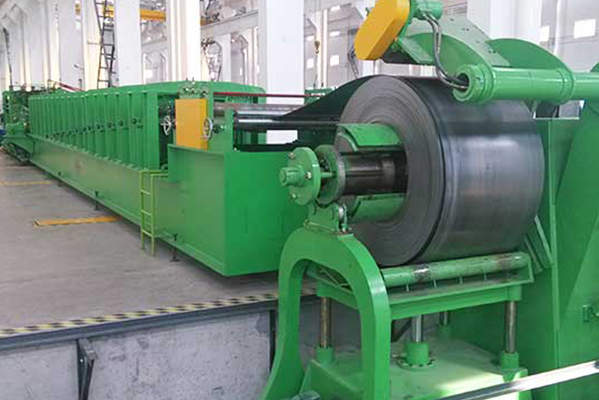Navigation Menu
Contact Us
- Email:
- info@wxavatar.com
- Address:
- Yurong Village, Yuqi Street, Huishan District, Wuxi, China.
Release Date:Jul 07, 2025 Visit:70 Source:Roll Forming Machine Factory
The steel silo industry has seen significant advancements in manufacturing technology to meet diverse storage needs across various sectors. Roll forming machines, the core equipment for producing steel silo panels, have evolved considerably to accommodate increasingly customized design requirements. This article explores how modern roll forming technology is adapting to deliver tailored solutions while maintaining production efficiency and structural integrity.

Modular Machine Designs for Flexibility
Contemporary steel silo roll forming machines now incorporate modular designs that allow for:
Quick changeover between different panel profiles
Adjustable forming stations to accommodate varying material thicknesses
Interchangeable roll sets for different corrugation patterns
Scalable production lengths without requiring complete machine redesign
This modular approach enables manufacturers to respond efficiently to custom specifications while minimizing downtime between production runs.
Advanced Control Systems for Precision Customization
Modern roll forming machines integrate sophisticated control technologies including:
Computerized panel length measurement and cutting systems
Real-time thickness monitoring for consistent quality
Automated profile adjustment mechanisms
Digital interfaces for storing and recalling custom profiles
These systems ensure precise execution of customized designs while maintaining the repeatability needed for large-scale production.
Material Handling Adaptations
To accommodate the growing variety of materials used in specialized silo applications, roll forming machines now feature:
Adjustable feeding systems for different coil widths
Tension control mechanisms optimized for various steel grades
Surface protection systems to prevent damage to coated materials
Multi-layer processing capabilities for composite panels
These adaptations allow manufacturers to work with the specific materials required for specialized storage applications.
Integration with Complementary Processes
Modern roll forming lines increasingly incorporate additional processing steps to deliver complete customized solutions:
In-line punching and notching stations for specific assembly requirements
Automated sealing system application for specialized joints
Integrated bending units for custom corner profiles
On-line quality inspection systems tailored to project specifications
This comprehensive approach reduces handling between processes and ensures consistency in customized production runs.

Conclusion
The evolution of steel silo roll forming machines demonstrates how industrial equipment can successfully adapt to meet growing demands for customization. Through modular designs, advanced controls, material handling improvements, and process integration, manufacturers can now efficiently produce steel silos tailored to exact project requirements without sacrificing production quality or efficiency. As these technologies continue to develop, we can expect even greater flexibility in meeting specialized storage solutions across industries.